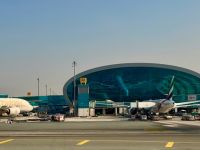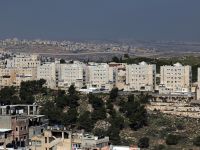In a move highly anticipated for weeks, Syrian President Hafez al-Assad has accepted the resignation of his 8-year old cabinet. Prime Minister Mahmoud al-Zu'bi will be replaced by a relatively unknown figure in Syrian politics - the governor of Aleppo province, Mustafa Miro (59). During his five-year reign over the second most important region of the country, Miro earned a reputation of honesty and a determination to combat corruption. The makeup of his government should appear clear within several days, and younger faces are expected to succeed most veteran ministers, especially in the economic portfolios.
Reliable sources suggest that Foreign Minister Farouk al-Sharaa, who has led the peace talks with Israel, will maintain his post. Al-Sharaa is a well-known backer of the President's son, Dr. Bashar, who is being groomed as his father's inheritor. Despite the overwhelming conviction in Damascus that Bashar has played a key role in selecting the new government's members, he asserted that his function was limited to "recommending certain qualified people…to the Baath Party leadership."
Irrespective of his part in forming Syria's new cabinet, its character will serve to strengthen Bashar's power base in his homeland. Furthermore, since he became the unofficial heir apparent, both father and son have been disposing of potential opponents that could strive to exploit Bashar's perceived inexperience. Recent purges include the February 6 retirement of military intelligence head Gen. Ali Duba, who was regarded as "a major obstacle to Bashar's accession."
Earlier this week, Bashar was quoted as stating that the new government must speed up reforms, which "are more necessary than ever in sectors such as the economy, information, education and technology." Additionally, the local business community will push Prime Minister Miro to implement far-reaching and promised reforms such as amendments to archaic business laws, banking practices and exchange controls, and the long-overdue creation of a stock exchange with a solid regulatory framework. These factors, together with widespread administrative corruption and excessive red-tape have squeezed out private investment in Syria. Such a poor financial climate, exacerbated by a severe drought, has subsequently led to economic contraction: Syria's GDP, which stood at $16.5 billion, is now appraised at merely $15 billion.
For Syria's new Prime Minister, demographic pressures should compel him to move swiftly in executing reforms. The country's nearly 17 million citizens will reach 25 million by 2025, thus necessitating the allocation of $4 billion this decade for job creation alone. Recent project financing, including a $148 million loan from the Abu Dhabi Development Fund and $100 million in government-approved private investment should help alleviate this impending crisis.
Meanwhile, several recent developments suggest Syria is already moving toward modernizing its obsolescent economy. Late last year the government permitted 3 international firms to set up a 60,000-line GSM telephone network that finally became operational last month. Nevertheless, demand for this service has been weak: only 900 of the 60,000 lines have yet been purchased. In an effort to stimulate demand, Syriatel (the company which is managing cellular services) is reducing installation and user fees by roughly 75 percent. The government has also enhanced the country's Internet access and awarded French systems group Steria a credit card tender.
Moves such as these should serve as models for Syria's new Prime Minister to pursue vital reforms necessary to hoist the economy out of a deep recession. Miro should receive strong backing from a relatively youthful and dynamic cabinet ministers, who will bring with them a fresh doctrine. These officials will also serve to clear the path for Bashar's official appointment to a senior position
© 2000 Mena Report (www.menareport.com)







